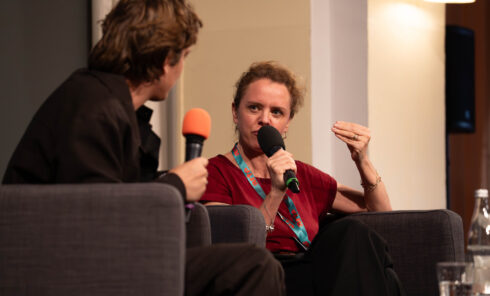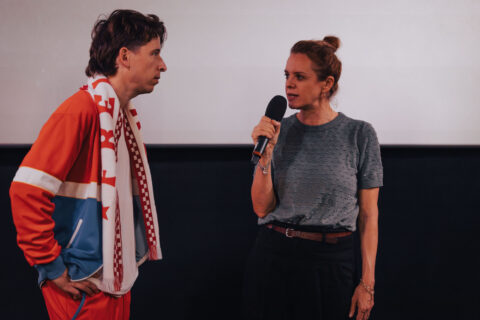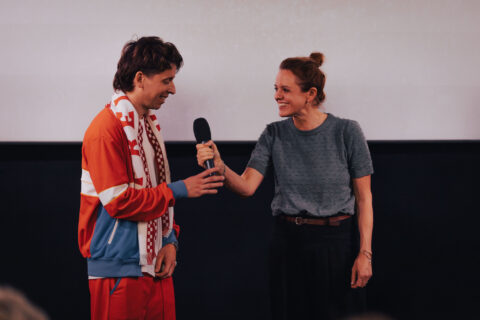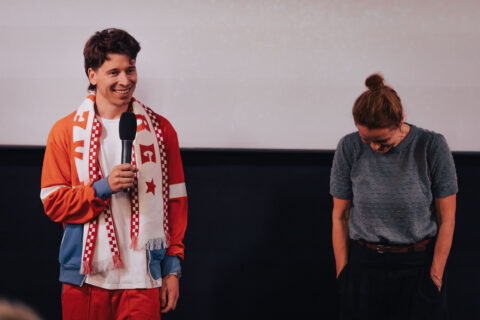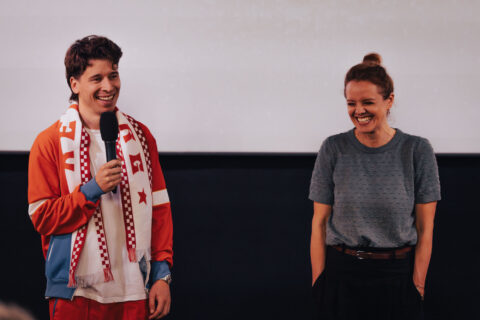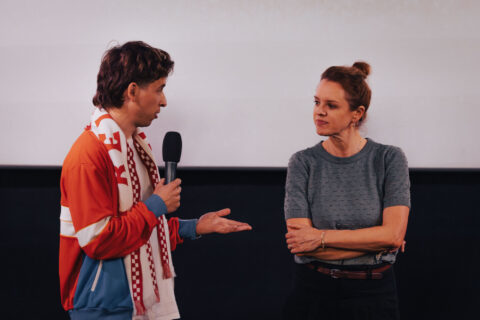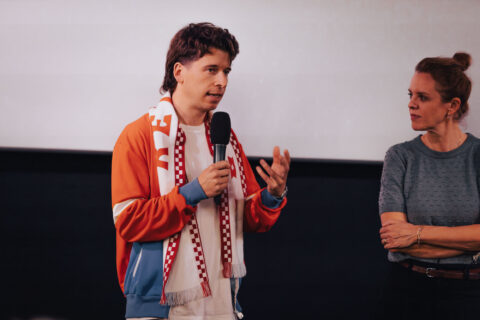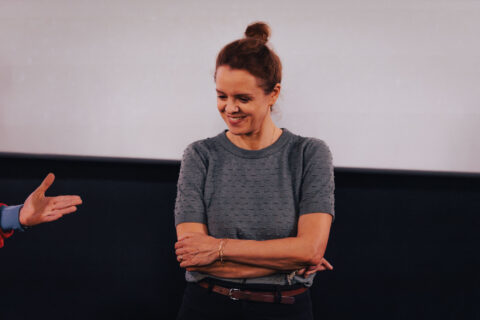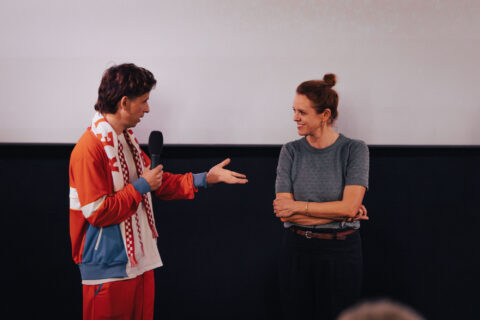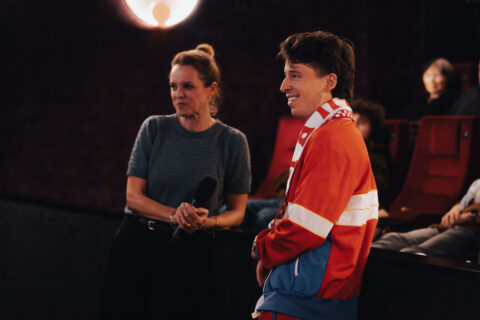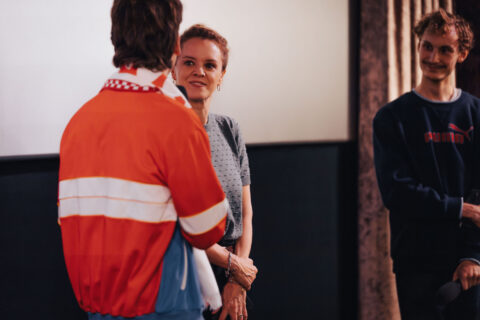Und Morgen die ganze Welt
Luisa is 20 years old and comes from a good family. She is studying in her first semester of law school. But she wants to see change in Germany. Alarmed by the shift to the right in the country and the increasing influence of populist parties, she joins forces with her friends to take a clear stand against fascists. Soon, she connects with charismatic Alfa and his best friend Lenor; the two of them believe that the use of violence is a permissible means of resistance. Events come to a head, and Luisa has to decide how far she is willing to go — even if this means fatal consequences for her and her friends…
Cast
- Luisa
- Mala Emde
- Alfa
- Noah Saavedra
- Lenor
- Tonio Schneider
- Batte
- Luisa Céline-gaffron
- Dietmar
- Andreas Lust

Und Morgen die ganze Welt
Julia von Heinz
- Production Country / Year
- Germany 2020
- Language
- dt. OF ohne UT
- Format
- DCP, Color, 110min
2.39:1, Discrete 5.1
Director & Crew
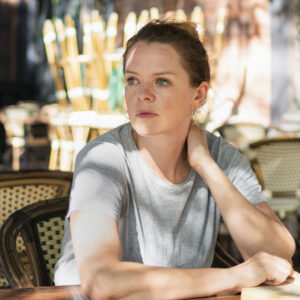
Julia von Heinz
Born in 1976 in Berlin. Studied and attained a Doctorate degree at the Film University Babelsberg Konrad Wolf. Active as a director, screenwriter, producer and professor.
Filmography
| 2001 | Doris | Kurzfilm | |
| 2003 | Lucie & Vera | Kurzfilm | 2003 |
| 2007 | Was am Ende zählt | Spielfilm | |
| 2008 | Alles was am Ende zählt | Spielfilm | |
| Standesgemäß | Dokumentarfilm | 2008 | |
| 2012 | Hanni und Nanni 2 | Spielfilm | |
| Rosakinder | Dokumentarfilm Co-Regie |
2012 | |
| 2013 | Hannas Reise | Spielfilm | 2013 |
| 2015 | Ich bin dann mal weg | Spielfilm | |
| 2017 | Katharina Luther | TV-Film | |
| 2018 | Für immer und dich | TV-Film | 2018 |
| 2020 | Und morgen die ganze Welt | Spielfilm | 2020 |
| 2021 | Eldorado Kadewe | TV-Serie | |
| Isolation – meine Väter | Episodenfilm Co-Regie |
2021 | |
| 2024 | Treasure | Spielfilm | |
| She gets it from me |
This is my most personal film, as well as the one that has occupied me the longest—to this day. It reflects my own time in the Anti-Fascist Action Group, of which John Quester and I were members throughout the 1990s and beyond. But above all, the film was a reaction to the electoral successes of a right-wing extremist party in 2015, the first time this had happened in Germany since 1945. How could it happen, in Germany of all places? How can we defend our democracy? Must we resort to militant means? This desperate question preoccupies Luisa and the rest of the group, almost breaking them; at the same time, though, they are building resilience through friendship, love, and the replacement family they find in each other.
Mala Emde embodies Luisa; she carries this film. And it is still relevant. It has lost none of its topicality since its premiere in competition at Venice 2020, and is shown and discussed almost weekly in political contexts or schools. Since then, right-wing ideas have reached the mainstream of society. The AfD harassed the Commissioner for Culture and Media with a “Regular Enquiry” about our film in the Bundestag, but it was rejected. Perhaps I will make a similar film again in a few years’ time. The question of how we can protect our democracy continues to preoccupy me.
- Make-up
- Silke Dotzauer
- Music Composer
- Matthias Petsche
- Producer
- Julia von Heinz
- Fabian Gasmia
- Production Designer
- Christian Kettler
- Writer
- Julia von Heinz
- John Quester
- Sound
- Bettina Bertók
- Editor
- Georg Söring
- Casting Director
- Mai Seck
- Costume Designer
- Maxi Munzert
- Co-Producer
- John Quester
- Thomas Jaeger
- Antoine Delahousse
- Director of Photography
- Daniela Knapp
- TV Commissioning Editor
- Katharina, Dufner (SWR)
- Andreas Schreitmüller (ARTE)
- Andrea Hanke ( WDR)
- Harald Steinwender (BR)
